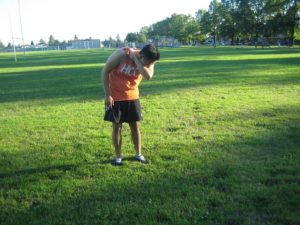Cold sores are small blisters filled with fluid forming on or around the mouth and lips. They might form on their own or as small clusters. In most cases, the blisters might break, forming a scab that falls off. Generally, the cold sores are brought about by the herpes simples virus type 1 (HSV-1).
It is highly contagious, and one can spread the virus even if there are no symptoms. Cold sores are transmittable until they completely go away which takes around 2 weeks.
How does it spread?
The virus responsible for cold sores spread via contact with saliva or skin such as kissing or sharing utensils or towels. The virus can also enter the body via a break in the skin such as a small wound.

Once an individual acquires HSV-1, it is present for life. Nevertheless, some with the virus do not have any symptoms. The virus remains dormant in the nerve cells until it is reactivated. Remember that the virus can still spread to others even if it is dormant.
Some of the factors that can reactivate the virus include:
- Fatigue
- Stress
- Sun exposure
- Fever or infection
- Hormonal changes
- Surgery
- Physical injuries
Do I have cold sores?
Some of the early signs of cold sores include:
- Tingling
- Swelling
- Soreness
These signs might manifest near or around the mouth.
In case an individual never had a cold sore before, these might also be present:
- Fever
- Headache
- Painful mouth sores on the gums or tongue
- Generalized aches and pain
- Enlarged lymph nodes in the neck
- Sore throat while swallowing
Management of cold sores
Prescription antiviral drugs might be given by the doctor to hasten the healing process of cold sores. These are often available in cream or pill form.
For severe infections, a shot of antiviral drug is given. Some of the commonly used antiviral drugs for cold sores include acyclovir and valacyclovir.
Over-the-counter treatment options such as docosanol to allow healing of the cold sores.
A cold compress can lessen the swelling and redness. In addition, non-steroidal anti-inflammatory drugs (NSAIDs) can be given to reduce the inflammation.
